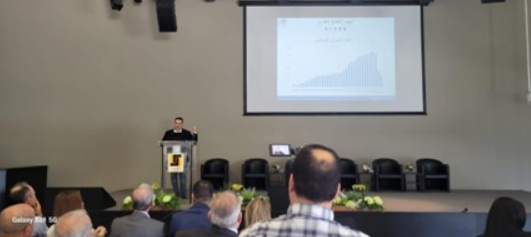LIMS was invited as a keynote speaker to a conference organized by the Scientific Committee at the Order of Engineers and Architects in Tripoli on May 20.
LIMS showcased using charts a compelling correlation between the augmentation of currency in circulation (M0) and the subsequent devaluation of the Lebanese pound (LBP). Periods of exchange rate stability were consistently accompanied by a stable money supply. The data also revealed that the trade deficit did not exhibit a direct correlation with currency devaluation, indicating a distinct phenomenon plaguing Lebanon—a wage-price spiral. In an attempt to curb the effects of inflation, the government has resorted to salary increments. However, this course of action proves to be a mere double-edged sword as these wage increases are, in essence, funded through inflation itself. Meanwhile, the central bank finds itself grappling with substantial losses incurred from borrowing in USD from commercial banks to subsequently lend to the government in LBP. The central bank is now striving to offset these losses through an expansionary monetary policy, thereby engendering inflationary pressures.
LIMS recommended a series of measures to restore economic vitality. First and foremost, halting any additional money creation. Second, reducing taxes and curbing government spending to resuscitate the ailing economy. Furthermore, the need to prudently safeguard the remaining foreign exchange reserves held at the central bank was emphasized. The compelling opportunities at the local level were also highlighted, particularly in decentralized electricity production and waste management.
LIMS Speaks about Lebanon’s Current Financial and Monetary Crisis at Conference

